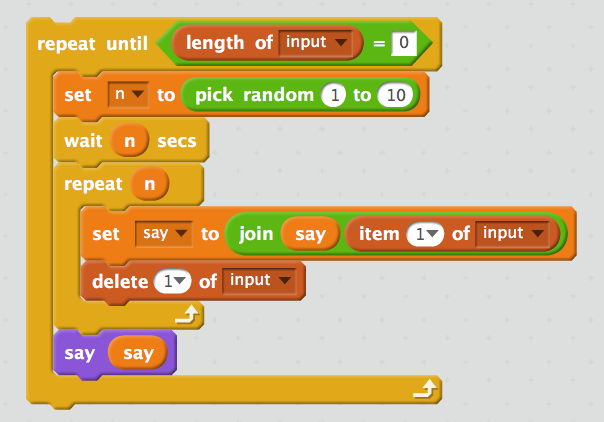Your challenge is to write a program or function that hiccups a string. It should take a string as input (via any standard method), then follow these steps:
- Generate a (not necessarily uniformly) random integer n between 1 and 10, inclusive.
- Wait n seconds.
- Print the initial/next n chars of the input, or the rest of the input if there are less than n chars.
- If there is input left to print, go back to step 1.
Rules
- The input will always be a non-empty string containing only ASCII chars (32-126).
- The wait time does not have to be exactly n seconds, but it must be within 10% of n.
- You may print a trailing newline each time a section of text is printed.
Example
A space here represents 1 second. If the input is Hiccupinator!, an output might be:
Hic cupin a tor!
Scoring
This is code-golf, so the shortest code in bytes wins.

